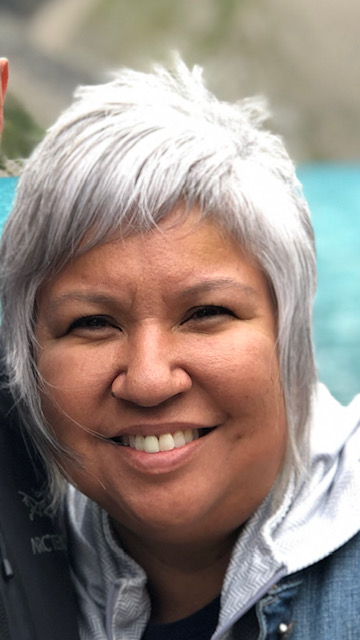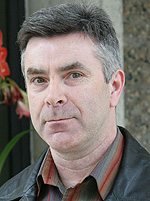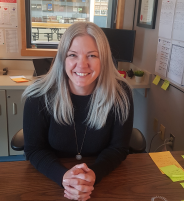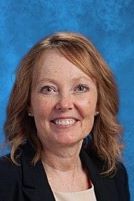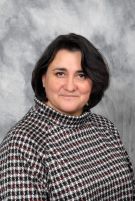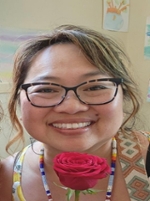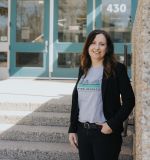Tuesday, July 2
Wednesday, July 3
Thursday, July 4
Friday, July 5
The 2024 SPSC program focuses on six major categories. During the week we ask each fireside chat group to submit questions to be asked to a panel of our SPSC facilitators on the last day. We are asking that you explore these six “framing topics” at the culminating plenary called “READY SET, ASKED, AND ANSWERED”. Our expect panel of facilitators takes turns answering the selected questions that come out of those submitted by the separate “fireside chat” cohorts.
Framing Topics
- Planning and Accountability
- Change Leadership
- Leading Learning
- Social Responsibility and Inclusion
- All Our Relations: Partners in/and Education
Impact Session Descriptions

Eventually all leaders need to provide feedback to colleagues, peers, and individuals. Yet, providing feedback is not a natural skill set for many people and can be become a point of stress and anxiousness as much for those who receive it as it is for those who provide it. Good feedback is a necessary and important step in workplace leadership and can be a source of improved outcomes, strengthened relationships and healthy workplace cultures. This session will explore some models for providing feedback and identify some good resources for learning more about conversations that matter.
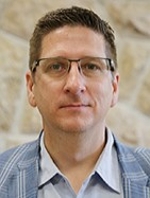
This presentation reports on the ways in which rural school principals in Alberta, Manitoba, and Saskatchewan enact instructional leadership within the five leadership domains conceptualized by Robinson, Lloyd, and Rowe (2008). Rural principals often have teaching responsibilities in addition to supervisory and managerial responsibilities. These complex roles often impact the way in which principals practice instructional leadership due to time constraints and competing priorities. Although principals often suggest that they are “not where they wanted to be” in their efforts to enact instructional leadership, Rural principals’ actions demonstrate exemplary practice in this regard. The nature of the discourse perpetuated by leadership groups and teachers’ associations that equates instructional leadership with classroom visits is a challenging model that is often not feasible in small rural schools. This characterization has the effect of decreasing rural principals’ self-efficacy as instructional leaders. We present suggestions for a reconstitution of the role of the rural principal and propose alternative IL practices for rural principals so that instructional leadership expectations are realistically manageable for leaders in small rural schools.
Dr. Paul Newton is Professor in the Department of Educational Administration at the University of Saskatchewan. Formerly, he was an Associate Professor in the Department of Educational Policy Studies at the University of Alberta and a school principal in Saskatchewan, Canada. He serves as editor in Chief of the Canadian Journal of Educational Administration and Policy and is Past President of the Canadian Association for the Study of Educational Administration. His research interests include administrative practices, the principalship, sustainability and social justice in schools, educational improvement, teacher leadership, and theoretical constructions of leadership and administration.

This virtual session will provide an overview of the topic for new and seasoned administrators that include student tracking and data submission timelines, the high school credit transfer process, secondary level credit options, and educator service information. Time permitting a Q & A will follow. Links to all resources will be provided.
Shelley Lowes is the Saskatchewan Ministry of Education Registrar and Director of Student and Educator Services. Born and raised in Saskatchewan, she earned her Bachelor of Arts and Education from the University of Saskachewan and Master of Education from Memorial University. She has taught Kindergarten to grade 10, in Saskatchewan, Manitob and Washington State.
In her spare time enjoys hosting family and friends in Regina or at Emma Lake, instructing yoga, volunteering and cheering on her favorite sport teams.
documents/july-2023-principal-short-course_reghdbk-ims-shelley-lowes.pdf

This interactive session will focus on practical strategies and considerations for supporting new and newer teachers in your school.
Derek Barss worked as a teacher, consultant and administrator for Saskatoon Public School for 25 years prior to joining the STF in August 2018. Currently, Derek works in labour relations with the Teacher Federation. Derek’s portfolios include Teachers in the First Five Years, Substitute Teachers, Policy and Governance and Leadership.
documents/supporting-new-teachers-principals-short-course.pdf
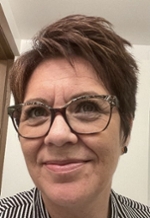
Being vulnerable and taking time to build a strong foundation helps to nuture the change you want to see in your school. As leaders, we really have to think about who we are, who we want to be, how we want to work with our staff.
documents/building-trusting-relationships-jackie-durocher.pdf

Dr. Sawchuk will lead participants through a series of perspectives on parent and family engagement. Participants will develop skills in developing their own framework to work with community to support learning outcomes for students. Family, school, and leadership components of family engagement will be explored based on both research and practice. The four articles that this presentation is based upon are attached for participants' consideration.
documents/developing-frameworks-for-working-with-parents.pdf

The session will overview the role of a school principal when managing fundraising revenues and school-based funds. We will also discuss the types of fundraisers that are acceptable and how to manage public perceptions when requesting funds.
Joel Lloyd joined Greater Saskatoon Catholic Schools in 2013 in the position of Chief Financial Officer. In his role, he has executive responsibility for the school division’s finances, facilities, transportation, payroll, insurance, and legal matters. Joel has always promoted transparency in school finances and the prioritization of funding to support classrooms whenever possible. Prior to joining Greater Saskatoon Catholic Schools, he worked for Living Sky School Division and Light of Christ School Division which are both located in North Battleford, Saskatchewan. Joel resides in Saskatoon, with his wife Ashley and two children, Maya and Hudson. When not working, Joel can be found at his family cabin, the rink, or the ballpark.

"Cultivating Digital Citizenship: Preparing Future Leaders in the Age of AI" explores the evolving landscape of education in the AI age. This session aims to inspire early career and aspiring leaders to leverage the transformative potential of online learning, encouraging a purpose-driven approach to digital citizenship that combines technical skills with an understanding of AI's ethical and societal implications. This session is designed to empower educators to create impactful, inclusive, and future-ready learning environments, fostering a generation of learners who are adept digital citizens.
Dr. Marc Gobeil, a Ph.D. graduate from the University of Saskatchewan's College of Education, is a passionate advocate for experiential learning. With eight years lecturing in Educational Technology and Design, he has also imparted practical knowledge in secondary technology and Practical and Applied Arts (PAA) courses in Saskatoon. In addition to his academic pursuits, Dr. Gobeil has held various consultancy and coordination portfolios. This fall, he continues his commitment to progressive learning strategies as the Principal for the Saskatoon Campus of the Saskatchewan Distance Learning Corporation, leading the way in online education delivery.
Traditional walk-throughs are often guided by checklists of strategies that principals look for as they observe teachers and instruction. In this session, participants will go beyond checklists to look at ways administrator walk-throughs can be used to support student learning.
documents/2023-administrator-walkthroughs-to-support-student-learning.pdf
|
Eric has been working in education for the last 15 years and is the current Principal of Lindale Elementary School in the Prairie South School Division. Eric is a University of Saskatchewan Alumni and received his master’s in educational administration and leadership from the University of New Brunswick. As a Principal, Eric believes we can support all our students by engaging them in their own learning. Eric began his career as a middle years teacher and shifted to the role of an in school administrator 7 years ago. He is married to his wife, Carol, and enjoys playing sports with his kids (Ella 12 and Jack 10), BBQing on the deck and hanging out at the lake. |
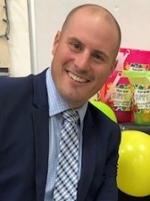 |

